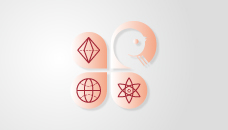RONG Hui, CHEN Xiaojie, LIU De-E, ZHANG Ying, ZHANG Lei, FENG Yang, LIU Zhihua. Research Progress on Macro Biological Corrosion of Marine Concrete[J]. Journal of the Chinese Ceramic Society, 2022, 50(2): 503
Search by keywords or author
- Journal of the Chinese Ceramic Society
- Vol. 50, Issue 2, 503 (2022)
Abstract

Set citation alerts for the article
Please enter your email address



